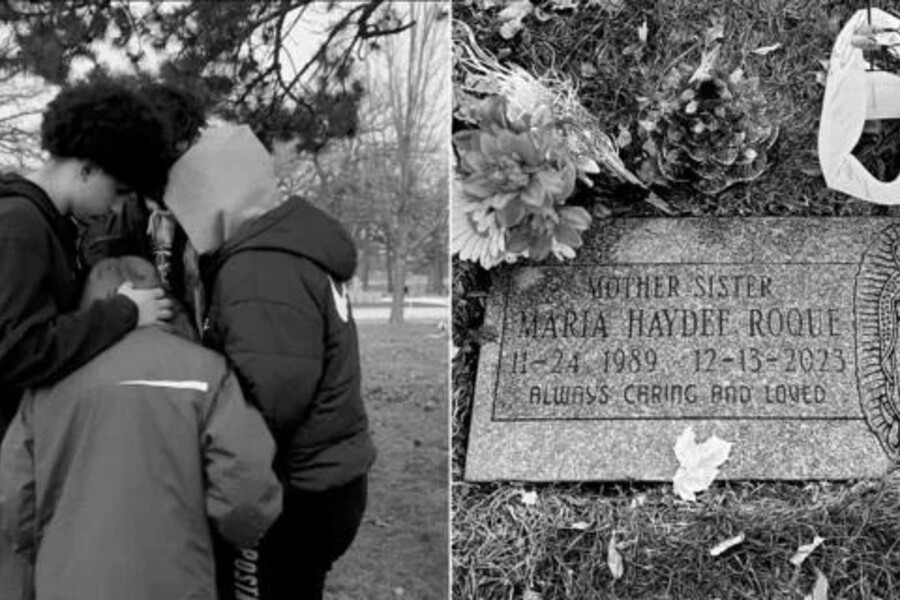A year after the tragic murder of Maria Roque, a 43-year-old mother of two, the shortcomings of Chicago’s system for serving protective orders have come under intense scrutiny. Roque was fatally shot outside her West Side home, allegedly by her ex-boyfriend Kenneth Brown. Her death, witnessed by her children, underscores a critical failure in the city’s handling of domestic violence cases.
Roque had obtained an emergency protection order against Brown, a document meant to keep him away under threat of arrest. However, the order was never served by law enforcement, leaving Roque vulnerable to further harassment. Despite her multiple police reports detailing escalating violence, including slashed tires, threatening messages, and arson, no arrests were made, and her pleas for help went unanswered.
The process of serving protective orders, known as “service,” is a vital step in ensuring the safety of domestic violence victims. Yet, data obtained from the Cook County Sheriff’s Office reveals a troubling gap: between 2021 and 2023, only 25% of the 77,000 protective orders issued were served. This systemic failure has left tens of thousands of victims like Roque without the protection they desperately need.
On the anniversary of her death, Roque’s family gathered at her gravesite, mourning the loss of a woman they described as a loving mother and sister. Her children, AJ and Arabel, now aged 14 and 9, witnessed the unthinkable—her brutal murder. AJ, who was just 13 at the time, tried to save her but was left traumatized by the experience. “He’s angry that he couldn’t do anything,” said Andres, Roque’s twin brother, who holds law enforcement accountable for her death.
The events leading up to Roque’s murder highlight significant shortcomings in the system. Five weeks before her death, she obtained an emergency protection order against Brown. The Cook County Sheriff’s Office made two unsuccessful attempts to serve it, citing issues like incomplete address information and locked doors. Meanwhile, Brown continued to terrorize Roque, culminating in her tragic death.
Cook County Sheriff Tom Dart has acknowledged the system’s failures, calling the situation “horrible.” While defending his office’s efforts, Dart admitted that his department is constrained by limited resources and outdated methods. He emphasized the challenges of tracking down individuals with incomplete address information but conceded that the system needs significant reform.
Critics argue that more immediate actions are necessary to address these systemic flaws. Local police agencies, which have access to protective order information through a statewide database, could serve these orders during routine interactions, such as traffic stops. Yet, in many cases, this does not happen. Roque’s repeated police reports, which documented continued harassment, were often suspended without further investigation.
Data also highlights disparities in service rates across Chicago. South and West Side neighborhoods, which experience higher rates of domestic violence, have the lowest rates of served protective orders. In Roque’s ZIP code, only 19% of protective orders were successfully served between 2021 and 2023, leaving countless victims without the protection they need.
Roque’s death has sparked outrage and calls for accountability. Her brother, Andres, filed a formal complaint with the Chicago Police Department, questioning their handling of her numerous reports. The department has yet to provide answers, stating only that the investigation is ongoing. Community advocates are demanding systemic reform to prevent similar tragedies in the future.
While recent data suggests a slight improvement in service rates for protective orders in 2024, the figures remain far below acceptable levels. Dart’s office has increased the number of attempts made to serve orders and is exploring technological solutions to improve tracking and enforcement. However, Dart himself expressed frustration with the system’s reliance on outdated methods despite advancements in technology.
For Roque’s family, the pain of her loss is compounded by the knowledge that her death was preventable. As they navigate life without her, they are determined to ensure her legacy drives meaningful change. “I just hope this makes the system better,” Andres said. “If we have another chance to save someone else, then I know she would want that.”
Roque’s story serves as a stark reminder of the urgent need to address the systemic failures that leave domestic violence victims without the protection they need. As Chicago grapples with these challenges, her family and advocates continue to fight for a system that prioritizes the safety and dignity of all survivors.
